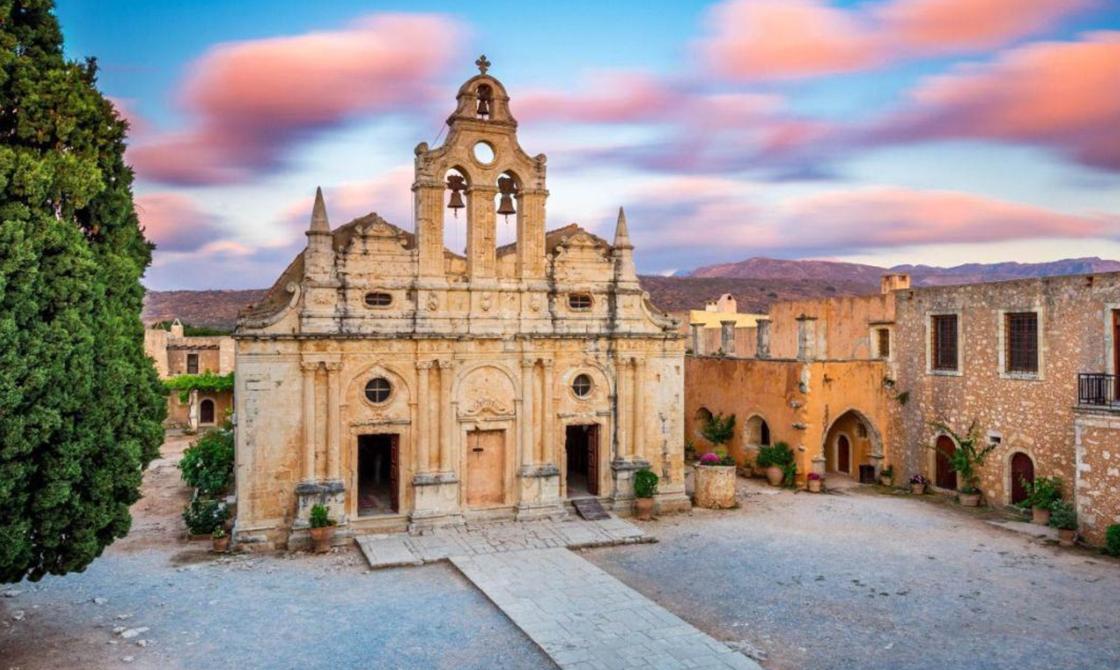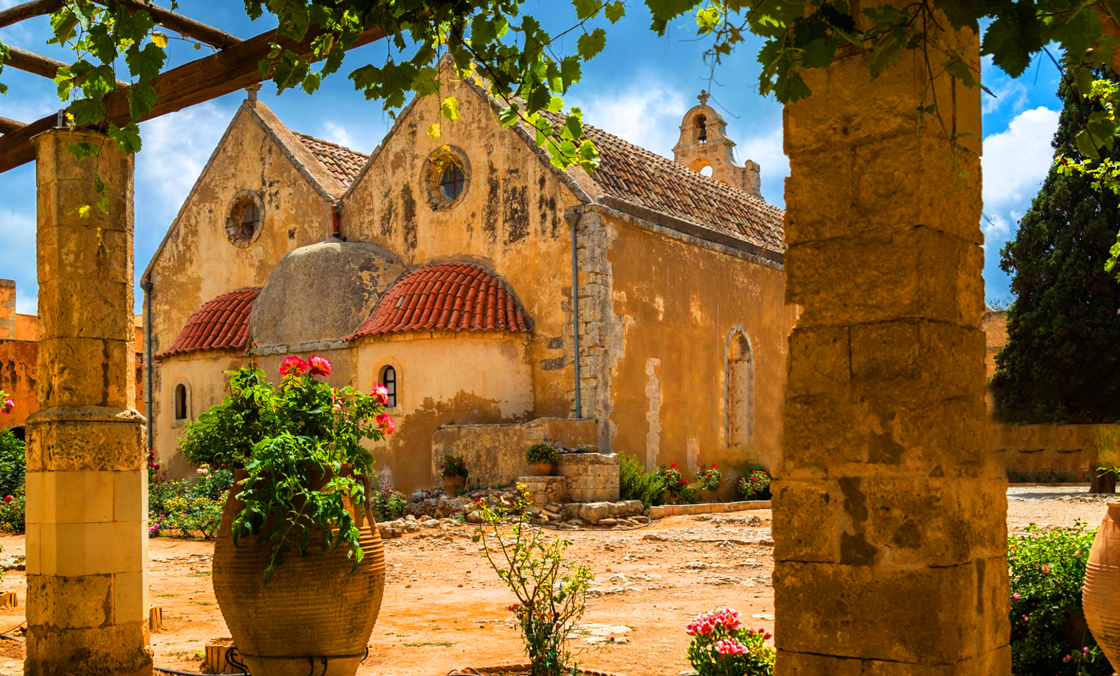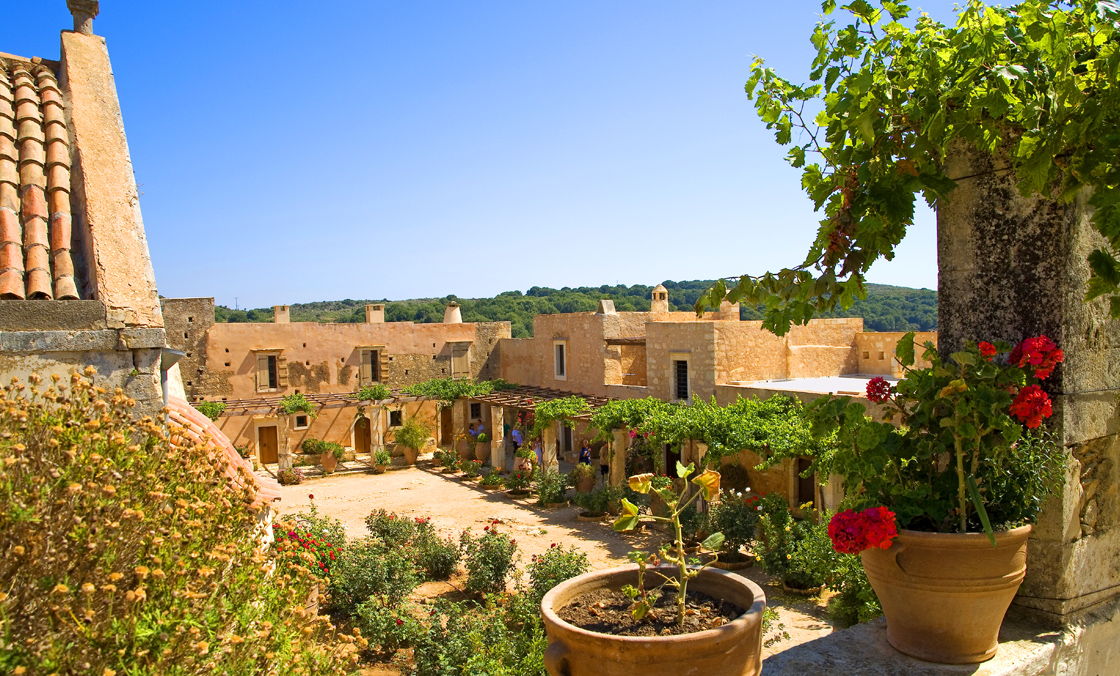
Sacred Monastery Of Arkadi
Arkadiou Monastery
Arkadiou Monastery is located near the village of Amnatos, 23km east of Rethymno. It is built at an altitude of 500m, on a fertile plateau with olive groves, vineyards, pines, cypresses and holly. Around the monastery there are many picturesque chapels, while next to the monastery begins the beautiful Arcadiotiko Gorge. The exact date of establishment of the monastery is not known, but it is believed to have been founded by Emperor Arcadius in the 12th century. During the Turkish occupation, the monastery was also called Çanli Manastir (rightful bell), as the monks of the monastery had won the right from the Turks to ring the bell instead of the sign.
The original temple of the monastery was dedicated to Agios Konstantinos and its ruins are preserved in the northwestern part of the precinct. In 1672, the small monastery was converted into a convent and the reconstruction of the great church of the Transfiguration of the Savior, which dominates today in the center of the precinct, began. The buildings include accommodation, the abbot's house, the bank, the kitchens, the oven, the fermenter, the food stores, the tank, the oil and wine factory, etc. Some rooms have been converted into a museum with great ecclesiastical collections of vestments, icons, sacred vessels, books, manuscripts and objects related to the revolution of 1866 (such as the banner).

The strong fortification of Arkadius attracted the rebellious Cretans and as a result it was burnt down by the Ottomans several times, in 1646, 1821 and 1866. Many Turkish and Greek documents refer to the life and adventures of the monastery which was able to support or harbor wanted persons, provide basic education, morally strengthen the region and lead national affairs. Arkadi is certainly the most historic monastery in Crete, which was to become the holiest symbol of the Cretan Struggle for Freedom, as it was here that the tragic holocaust of 1866 took place with the explosion of the wine cellar where the revolutionaries kept the gunpowder. This event paved the way for the liberation of the island in 1898, while UNESCO has designated Arkadi as a European Freedom Monument.

